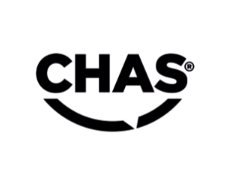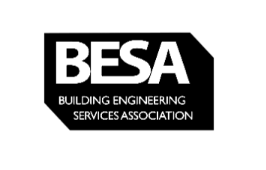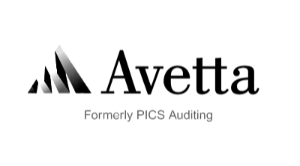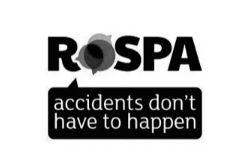phs Group has acquired Citron Hygiene UK find out more here
In the quest for a greener and more sustainable future, the waste hierarchy stands as a guiding principle, offering a roadmap to effective waste management and environmental preservation. In fact, applying the waste management hierarchy in the prevention and management of waste is a legislative requirement under the Waste (England and Wales) Regulations 2011. Everyone in the waste management chain – from producer to final disposer – has a role in the consideration and application of the waste hierarchy. Understanding its key principles therefore is essential to supporting our compliance with the law and revolutionising our approach to waste.
As the leading provider of waste services across the UK and with more than 3,000 expert personnel, phs Group is fully equipped to help your organisation meet the principles of the waste hierarchy. We offer a range of waste management services, whatever your industry – be it healthcare, education, retail, hospitality, manufacturing, offices, transport and beyond.
In this blog, we’ll explore the concept of the waste hierarchy, uncovering how it works for various materials and products, and highlighting the responsibilities of businesses and public bodies.
Your waste responsibilities explained
All businesses and organisations have a duty towards managing waste and reducing their impact on the environment. Under the Waste (England and Wales) Regulations 2011, businesses have a legal responsibility to manage their waste according to the waste hierarchy, which prioritises waste prevention, reuse, recycling, and other forms of recovery before considering disposal.
Effective waste management practices include engaging employees, sorting waste, establishing recycling programs, and adhering to the Waste Hierarchy to comply with legal obligations and lessen environmental impact.
Companies must take all reasonable measures to apply these principles, ensuring that waste is reduced at its source and that any leftover waste is handled in an environmentally responsible manner. This includes conducting waste audits, segregating different types of waste, and using authorised waste carriers for disposal. Failure to comply with these regulations not only risks legal penalties but also undermines corporate sustainability efforts and environmental responsibilities.
A Pathway to Environmental Excellence – the importance of waste hierarchy
While waste management in the UK has improved over the years, there is still a lot to be done. According to the latest figures, 40.4 million tonnes of commercial and industrial (C&I) waste was generated in 2020, while England-only C&I waste generation was around 33.9 million tonnes in 2021. But even the vast amounts of household waste will feature elements generated by the commercial and industrial sectors. Bringing these figures down further is essential for reducing waste generation in the UK.
At its core, the waste hierarchy is a systematic approach to ranking waste management options based on their environmental impact. Sustainable waste management emphasises the waste hierarchy as an effective framework for reducing environmental impact. Think of it as a ladder, with each rung representing a step towards greater sustainability. By adhering to this hierarchy, we can optimise resource utilisation, reduce pollution, and minimise our ecological footprint.
Climbing the ladder – how the waste management hierarchy works
· Prevention: The first step on the hierarchy is to prevent waste. It’s the ultimate “win-win” – by preventing as much waste generation as possible from being generated in the first place, we save resources, energy, and money. This can involve using less material in the design and manufacture of products, designing products with longevity in mind, using less hazardous materials in the manufacture of products, or making lifestyle choices that minimise waste production.
· Preparing for reuse: If waste cannot be prevented, the next best option is to minimise it. This involves strategies like reusing items – either whole or breaking them down into spare parts, repairing products, and embracing durable goods. By extending the life of products, we delay their entry into the waste stream.
· Recycling: Recycling is a familiar concept, where materials are collected, processed, and transformed into new products. This conserves resources and reduces the need for raw materials, making it a vital step in the hierarchy.
· Recovery: Energy recovery is the utilisation of non recyclable waste to generate energy, such as through waste to energy facilities. This step extracts value from waste that cannot be recycled and includes anaerobic digestion, incineration with energy recovery, gasification and pyrolysis which produce energy such as fuels, heat and power.
· Disposal: The last resort, disposal, involves safe and responsible waste disposal in landfills or incineration plants without energy recovery. Modern disposal methods prioritise minimising environmental harm.
From packaging to electronics – applying the waste hierarchy
The waste hierarchy’s versatility is one of its strengths, as it can be applied to many common materials, such as paper and card, food, garden waste, textiles, glass, metals and plastics. Managing waste materials effectively is crucial to prevent waste from being generated initially. Let’s explore how it works for different materials and products in use across most UK businesses and industries:
· Packaging Waste: Imagine the countless packages we encounter daily. Applying the hierarchy means businesses should prioritise minimalistic packaging, encourage reuse, and explore recyclable or biodegradable materials. For consumers, it’s about choosing products with eco-friendly packaging and recycling diligently.
· Waste Electric and Electronic Equipment (WEEE): Electronics have a significant environmental impact due to their complexity. The hierarchy calls for responsible WEEE disposal, reuse of functional components, and recycling of valuable materials like metals and plastics. It also encourages manufacturers to design electronics with easier disassembly for recycling.
· Food Waste: Food waste prevention tops the hierarchy. Businesses can implement strategies to reduce surplus food, while consumers can shop mindfully and utilise leftovers. Composting is another eco-friendly way to manage food waste.
Responsibility in action – waste management practices for businesses and public bodies
Waste management services, as provided by phs Group, play a pivotal role in translating the waste hierarchy into actionable steps, and we support countless UK businesses to ensure they remain legally compliant and environmentally efficient. Collaborating with a waste management provider can assist businesses in maximizing reuse opportunities and navigating complex waste regulations. Businesses have the responsibility to adopt eco-friendly practices, from reducing packaging waste to implementing recycling programs. An on-site recycling facility enables businesses to recycle efficiently, contributing to the overall reduction of waste and conservation of resources. Public bodies, on the other hand, must enact policies that promote waste reduction, recycling, and the responsible management of waste streams.
How can we help?
Whilst many organisations share the goal of supporting a sustainable future for our planet, striving for environmental sustainability can be challenging and require significant resources and diligence to achieve. At phs Group our cost-effective waste management services can help you realise your environmental responsibilities, and our expertise can support you to successfully apply the waste hierarchy in your business or organisation. Effective waste management reduces the necessity of disposal facilities by minimizing waste generation.
Our waste management services include clinical waste disposal, non-infectious waste collection, food waste management and many more. Through phs Wastekit, you can benefit from waste compactors and balers which will make it easier to recycle your waste, and even help you save on waste management costs. We provide the services that businesses and organisations need to keep up with the latest waste management guidance. Contact us today for more information about our waste management services and support.


































